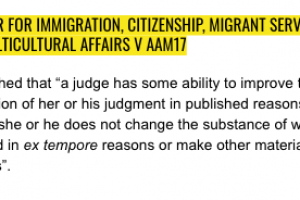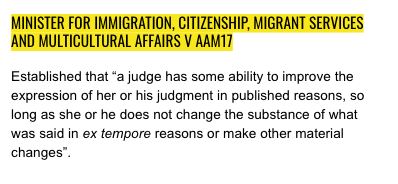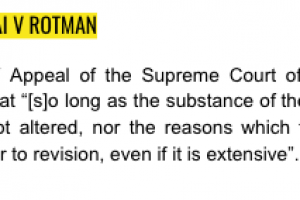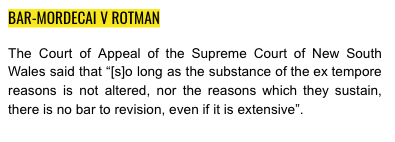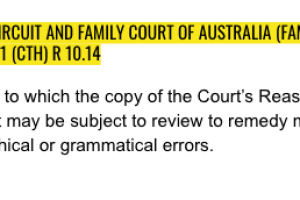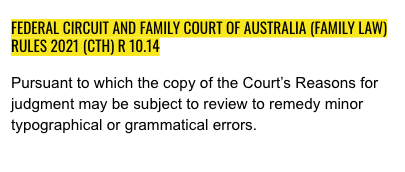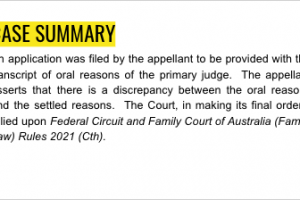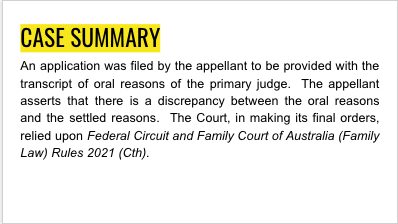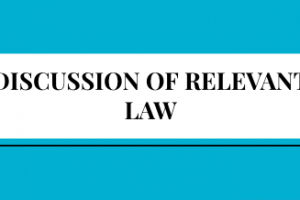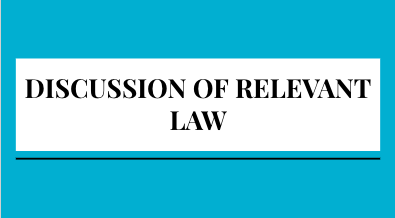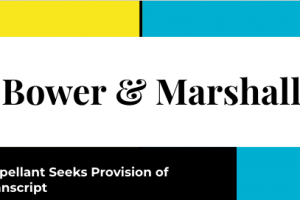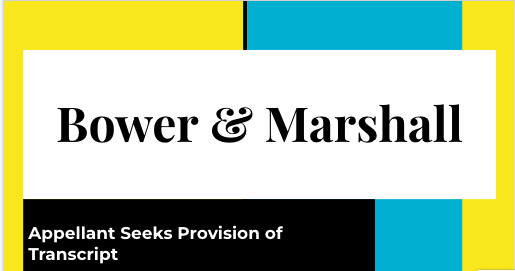- · 4752 friends
Appellant Seeks Provision of Transcript

Bower & Marshall [2022] FedCFamC1A 88 (8 June 2022)
An application was filed by the appellant to be provided with the transcript of oral reasons of the primary judge. The appellant asserts that there is a discrepancy between the oral reasons and the settled reasons. The Court, in making its final orders, relied upon Federal Circuit and Family Court of Australia (Family Law) Rules 2021 (Cth).

Facts:
An application was filed by the appellant to be provided with the transcript of the oral reasons of a judge of the Federal Circuit and Family Court of Australia (Division 2), as opposed to the settled reasons which have been provided to the parties. Ordinarily, parties are only entitled to see the oral reasons as settled by the judicial officer who delivered them. Here the applicant asserts that there is such a discrepancy between the two that the Court should take the rare step of providing the parties with the unsettled transcript of the oral reasons. On 23 February 2022, the primary judge made a suite of orders preparing the matter for hearing.
Order 2 dismissed the applicant’s Application in a Case filed on 23 November 2021, which sought an order that the parties’ child spend supervised time with him. His Honour found that “permitting contact in the interim may have a serious deleterious effect upon the ability of the Respondent Mother to carry out her parenting activities such that it is not appropriate to permit contact between the Applicant Father and the Child prior to the final hearing”. The applicant filed a Notice of Appeal on 21 March 2022.
Issue:
Whether or not the Court should grant the application.

Applicable law:
Federal Circuit and Family Court of Australia (Family Law) Rules 2021 (Cth) r 10.14 - pursuant to which the copy of the Court’s Reasons for judgment may be subject to review to remedy minor typographical or grammatical errors.

Bar-Mordecai v Rotman [2000] NSWCA 123 - provides that the Court of Appeal of the Supreme Court of New South Wales said that “[s]o long as the substance of the ex tempore reasons is not altered, nor the reasons which they sustain, there is no bar to revision, even if it is extensive”.


Analysis:
In appropriate cases, the parties should be granted access to the original unsettled transcript of oral reasons because it is those reasons, subject to the right of the judge who delivered them appropriately to settle them, which are the operative reasons for judgment. If impermissible additions or alterations have been found to have been made, then they are ignored at any appeal. It is for the purpose of determining whether such additions or alterations have been made that a court will take the unusual step of obtaining the original unsettled transcript. The transcript reveals that the primary judge has extensively edited the oral reasons in an entirely permissible manner.
The settled reasons include a four page chronology, but it is clear from the oral reasons that his Honour intended to incorporate it in the settled reasons. The additions are not regarded as changing the substance of the reasons or that, despite the new heading, the balance of the reasons adequately explain the reasons for the orders and otherwise do not disclose any appealable error, but that is a matter for the hearing of an appeal.
Conclusion:
A copy of the original unsettled transcript of the reasons given by the primary judge on 23 February 2022, clearly marked as such, is to be provided to the parties and to their legal representatives for use only in the appeal. Neither the parties nor their legal representatives are to disclose the contents of the transcript or distribute copies of it to any other person. The Application in an Appeal filed on 12 May 2022 is otherwise dismissed.


